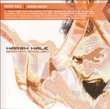| All Artists: a. Scarlatti Title: Alessandro Scarlatti: La Colpa, Il Pentimento, La Grazia / Stradella: Lamentatione Members Wishing: 0 Total Copies: 0 Label: Capriccio Release Date: 12/12/1992 Genre: Classical Styles: Opera & Classical Vocal, Historical Periods, Baroque (c.1600-1750) Number of Discs: 2 SwapaCD Credits: 2 UPCs: 4006408104117, 400640810411 |
Search - a. Scarlatti :: Alessandro Scarlatti: La Colpa, Il Pentimento, La Grazia / Stradella: Lamentatione
 | a. Scarlatti Alessandro Scarlatti: La Colpa, Il Pentimento, La Grazia / Stradella: Lamentatione Genre: Classical
|
CD DetailsSimilar CDs
Similarly Requested CDs
|
CD ReviewsWorld Heritage! Giordano Bruno | Wherever I am, I am. | 12/15/2009 (5 out of 5 stars) "Just as the United Nations designates certain architectural and cultural monuments as "World Heritage Sites", there ought to be such a designation for musical monuments of comparable stature. And if I were nominating pieces for the first ten World Heritage Compositions, along with obvious choices such as the Ockeghem Missa Prolationum, the Monteverdi Vespers, the Bach B-minor Mass, Handel's Messiah, Mozart's Requiem, and Mahler's Lied von der Erde, I would campaign vigorously to include Alessandro Scarlatti's Passion Oratorio "La Colpa, Il Pentimento, La Grazia." Scoff not, Scarlatti skeptics! I'm serious. This is the 'summa' - the summation, the summit - of Scarlatti's mature musical art, a composition that could have served as the textbook for composers for the rest of the 18th Century....
... as in a sense, it did. Though Scarlatti took rather few students under his wings, his technical craftsmanship was the model for the generation of composers that included Pergolesi and Handel. As late as Rossini, Scarlatti's works, though no longer in vogue for performance, were offered to students as examples of mastery of forms. "La Colpa, Il Pensimento, La Grazia" was commissioned in 1708 by Cardinal Pietro Ottoboni, the greatest patron of music in Rome and in fact the author of the libretto, for performance in his Palazzo della Cancelleria on Wednesday of Holy Week. Ottoboni had also commissioned an oratorio for Easter Sunday, the "Resurrezione" by the 23-year-old Saxon Georg Friedrich Handel. Scarlatti apparently finished his work in four days, and there's every reason to suppose that he intended it to meet any challenge the gifted upstart Handel might offer, yet it's a composition of extreme delicacy and musical economy. There are only three voices - two sopranos and an alto - though the orchestra is ample, with trumpets, trombones, and bassoon all added sparingly to climatic arias. The libretto is allegorical. The characters are La Colpa (Guilt is a better translation than Sin), Il Pentimento (Repentance), and La Grazia (Grace, in the theological sense). La Colpa is the emotional protagonist and the choicest role for affective singing. It's La Colpa who ranges emotionally from despair and shame to exultation; a sense of Guilt is the requisite for Repentance, and Repentance opens the way for Grace. Like nearly every baroque oratorio or cantata, La Copla is contructed as a succession of recitativos with substantial texts and arias with briefer, more poetic texts. In La Colpa, however, Scarlatti deftly overcame the start-stop regularity of the recitativo/aria format; his recitativos are more melodic (arioso, in technical language) and flow smoothly, seamlessly into his arias. The several dialogue recitativos sound almost like duets or trios. The da capo repetitiveness of the arias is subtly bridged by varying the instrumental accompaniment. There's hardly any of the florid vocal pyrotechnics of Handel's early cantatas/oratorios. Scarlatti's music sounds chaste and thoughtful by comparison. The music fits the text with an affective precision that few other composers have ever approached. It's the orchestra that serves as the intellectual protagonist of this oratorio, maintaining continuity over a single arc of development, supporting the emotional outbursts of the three allegorical voices yet 'commenting' gravely, with some detachment, on their expressions. Mozart, you may recall, was chided by his Emperor for including 'too many notes.' Whether you agree with that rebuke or not, you couldn't possibly chide Scarlatti for the same error. There's not a superfluous note in this whole oratorio, and yet the music flows with constant variety and vitality, with shimmering instrumental colors and bubbling rhythmic inventions. The instrumentalists of La Stagione Frankfurt could hardly be better. They play with flawless intonation and subtle restraint thoughout. Soprano Mechthild Bach (La Colpa) and soprano Petra Geitner (La Grazia) are likewise as vocally chaste as the music demands, letting the melody regulate their timbres, singing across and though the whole dramatic arc of the oratorio. Male alto Kai Wessel has sometimes disappointed me on other CDs, but in this performance as Il Pentimento (Rue is a more expressive word than Repentance), his shadowed timbre is highly expressive and appropriate. This is not a recent performance, one should note. It was recorded in 1992. There has been only one other recording of La Colpa, as far as I know, and that one has been discontinued. I'm fully satisfied with La Stagione's interpretation, but I'd love to hear other ensembles give it a whirl. How about 'Il Seminario Musicale'? Gerard Lesne, are you listening?" |

 Track Listings (16) - Disc #1
Track Listings (16) - Disc #1
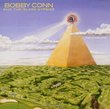
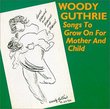
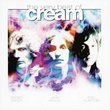
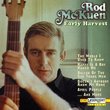
![Seussical [2000 Original Broadway Cast]](https://nationalbookswap.com/cd//m/02/4802/514802.jpg)



